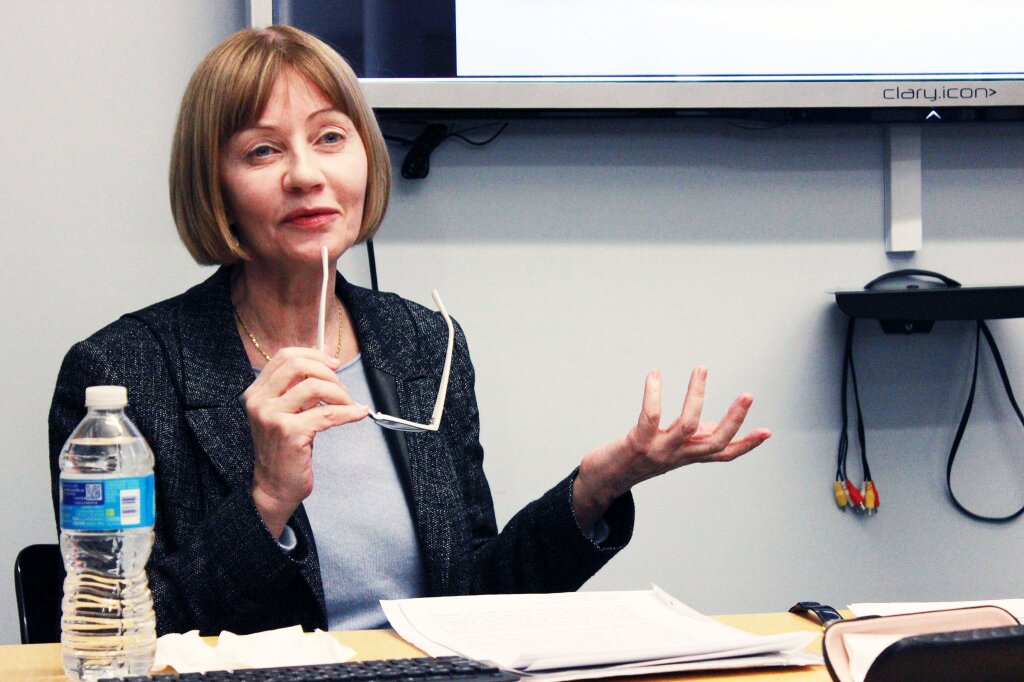On Monday, May 6, the Jordan Center hosted the last event in this semester’s diasporas series. While our previous sessions have focused on human interaction in both politics, history, and literature, it was about time that we took a step towards our ultimate Other: the animal. Including a prolific panel consisting of Tracy McDonald (McMaster University), Thomas Fleischman (NYU), Karl Appuhn (NYU), and Dale Jamieson (NYU), the discussion that took place offered a worthy conclusion to the diaspora sessions.
Tracy McDonald opened the symposium by presenting her ongoing project on Russian zoos from 1917-1990. What McDonald hopes to accomplish through her project is to show how the interaction between man and animal during this period of time can offer a new perspective on Russian history, especially during wartime, as well as shed light on the relationship between man and animal. At the same time, McDonald wants to show how there existed a clear difference between socialist zoos in Russia and capitalist zoos found in other countries. While the socialist zoos were focused on educating the visitors, the ones in capitalist countries were simply set on entertainment and profit. The zoos were therefore clearly politicized from a Russian point of view, although one might argue whether the animals themselves were treated any differently in the East and West.
Thomas Fleischman is currently finishing his dissertation on pigs in East-Germany. Fleischman is investigating how the animal body can be read as a historical document, where one can see both cultural and political differences through the ways in which animals are treated. Fleischman’s project includes looking at two categories of pigs in the GDR: the industrial pig and the garden pig. As his study shows, the industrialization of pig farms led to a monocultural development in the agricultural sector as a whole, as well as bigger problems such as erosion and pollution. In addition, grain was imported to be able to feed the industrial pigs, which led to man and animal competing for the same food products. Fleischman further argued that the situation in the former GDR is not much unlike the situation we are currently seeing in the U.S.
Dale Jamieson opened for discussion as he commented on both McDonald’s and Fleischman’s investigations. Jamieson pointed out how the two tend to focus less on the animal itself than one might have hoped based on their project topics. Coming from a philosophical and theoretical background, Jamieson suggested that McDonald and Fleischman look even closer at the animal as such, instead of just using it as a means of investigating the human and human interaction even closer. An interesting discussion followed, as the whole panel and its participants engaged in the question whether one really can “subjectify” the animal in an academic environment without being laughed at. However, as Jamieson and other pointed out, looking at the animal from such a perspective is essential in order to fully participate in an environmental discourse.
Karl Appuhn commented upon the two papers that were presented by questioning the dichotomy which was drawn between the two sides of the Iron Curtain. What Appuhn specifically challenged is the idea that there really is something different in the way Russia and the GDR, and the United States treat their animals. However, at the end of the discussion there was a consensus that socialist and capitalist zoos nevertheless differ greatly in presentation.
The second half of the symposium included an intriguing conversation on today’s hyper-industrialized agriculture, and whether or not something will change in the years to follow. A difference in attitude was here drawn between American and German food culture, and it was argued that American consumers have more acceptance of both the low quality of food products, as well as of the conditions animals live under. This does not have to be interpreted as a normative statement, but it still shows how the ways in which we treat and live with animals reflect our own culture, both ideologically and politically.
The semester’s last diasporas session thus offered a highly interesting debate, which included historical, political, but also ethical dilemmas.


